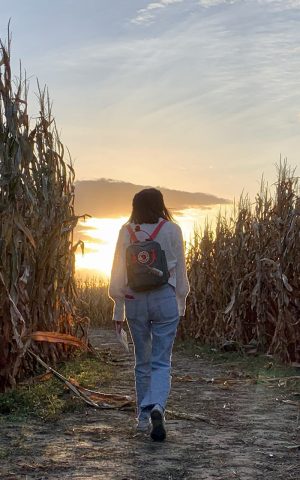Victims of a Double Standard
October 24, 2022
Palestinians have been oppressed, ethnically cleansed, displaced, bombed, and imprisoned for decades by the illegal state of Israel, and most people are ignoring it. After World War II, a swarm of Jewish refugees found sanctuary in Palestine, fleeing from the oppression they still faced. This is not the problem. Settlers stealing the land illegally is.
There is one important key part of this apartheid: Zionism. A white supremacist ideology that was established in Europe in the 19th century according to Britannica.com. These principles, that Israel follows, have led to war with Palestine and displaced 700,000 Palestinians between Dec 1947 to Jan 1949. Most of the pre-war population of Palestine lived in the West Bank area, where its land has been getting robbed for years (Brittanica.com). Over the years, the remaining areas of Palestine have been brutally assaulted taking many lives and injuring even more. Many homes have been demolished in the West Bank by Israel to add to their ever-increasing illegal empire.
As a result of this brutality, the violence has taken a toll on the mental health of all Palestinians, especially children. Living in America and hearing about these stories makes me feel thankful that I don’t have to live in fear for my life every second. I’m grateful that I’m not waking up to the sound of gunfire, or being taken to prison for no reason, wondering if that were the last time I would see my family before going to school. These children have experienced intense fear, anxiety, distress, and a multitude of grief. They should have never been exposed to horrors like these, but they live through them daily.
Now, why aren’t many people talking about this? For one, people, like celebrities, may be worried they will damage their reputation, they may not care, or they’re supporting Israel instead. If you compare what’s happening in Palestine to what’s happening in Ukraine, you will see that most people lean more towards supporting Ukraine than Palestine. This is an example of a double standard. Both countries are being attacked, but only one of the two is being called heroes for defending their country. Double standards are not uncommon, especially in this day in age. For example, the aid Pakistan has gained because of the flooding and the aid Ukraine has received from the U.S. for the war. About ⅓ of Pakistan is under water leaving hundreds homeless and more than 1,300 people dead as of September 5, 2022 (Al Jazeera).
This disaster has left hundreds of people vulnerable to waterborne illnesses and unsanitary conditions. The UN and Pakistan are hoping to receive $160m for emergency funding. The United States pledged to give $30m worth of help to victims of the flood. Keep in mind, that about 33 million Pakistanis are displaced right now, more than the number of internally displaced Ukrainians (UNHCR). I am not trying to say that one country is more important than the other, but they should be helped equally. However, I don’t see the disastrous flood being talked about much in mainstream media.
As I’ve started to touch on before, what’s going on in Palestine is not so different from Ukraine. Both countries are being affected negatively by tyrannical forces, however, one country is being hailed as heroes for defending their country while the other is being called terrorists for doing the same.
If your home, country, or state, was in danger would it be human instinct to defend it or would you let it be stolen at the cost of your identity? Why do we let these things happen and carry on if so many claims to be “activists.” How can you call yourself a campaigner for freedom if you don’t choose to speak up for active apartheid? Double standards like these are dangerous and unfair. They put something, like a one-sided event, and apply it to two or more groups, portraying them in different lights. As a result, only one side is justified. It is not anti-semitic to speak up for Palestine. We are failing this country and a lot of other places that are not receiving considerable aid. It is not a conflict if it is one-sided, call it for what it is.



Yusra Memon • Jul 2, 2023 at 12:23 pm
Wowww this is very long and interesting. Thank you for taking out all ur time just to write this!